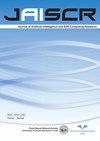利用认知模型理解和抵消自我诱导偏差对推荐算法的影响
IF 2.4
3区 计算机科学
Q2 COMPUTER SCIENCE, ARTIFICIAL INTELLIGENCE
Journal of Artificial Intelligence and Soft Computing Research
Pub Date : 2023-03-01
DOI:10.2478/jaiscr-2023-0008
引用次数: 1
摘要
在包含次优决策的训练集上训练的推荐算法可能会增加未来做出更多错误决策的可能性。我们把这种有害的影响称为自我诱导的偏见,以强调这种偏见是由用户过去的选择直接驱动的。为了更好地理解具有认知限制的老年人使用的推荐算法的自我诱导偏差的本质,我们使用了基于智能体的模拟。基于老龄化心理学和认知科学的最新研究成果,以及我们自己的实证结果,我们开发了一个包含认知决策能力的电子商务客户认知模型。我们通过比较具有和不具有由于年龄导致的认知限制的模拟代理所获得的结果来评估自我诱导偏差的程度。我们还提出了新的推荐算法,旨在抵消自我诱导的偏见。该算法考虑了用户偏好和与决策相关的认知能力。为了评估这些算法,我们引入了3个基准:一种简单的产品过滤方法和两种广泛使用的推荐算法:基于内容的和协同过滤的。结果表明,新算法在提高模拟代理(包括老代理和小代理)的效用和减少自我诱导偏差方面都优于基准。本文章由计算机程序翻译,如有差异,请以英文原文为准。
Using Cognitive Models to Understand and Counteract the Effect of Self-Induced Bias on Recommendation Algorithms
Abstract Recommendation algorithms trained on a training set containing sub-optimal decisions may increase the likelihood of making more bad decisions in the future. We call this harmful effect self-induced bias, to emphasize that the bias is driven directly by the user’s past choices. In order to better understand the nature of self-induced bias of recommendation algorithms that are used by older adults with cognitive limitations, we have used agent-based simulation. Based on state-of-the-art results in psychology of aging and cognitive science, as well as our own empirical results, we have developed a cognitive model of an e-commerce client that incorporates cognitive decision-making abilities. We have evaluated the magnitude of self-induced bias by comparing results achieved by simulated agents with and without cognitive limitations due to age. We have also proposed new recommendation algorithms designed to counteract self-induced bias. The algorithms take into account user preferences and cognitive abilities relevant to decision making. To evaluate the algorithms, we have introduced 3 benchmarks: a simple product filtering method and two types of widely used recommendation algorithms: Content-Based and Collaborative filtering. Results indicate that the new algorithms outperform benchmarks both in terms of increasing the utility of simulated agents (both old and young), and in reducing self-induced bias.
求助全文
通过发布文献求助,成功后即可免费获取论文全文。
去求助
来源期刊

Journal of Artificial Intelligence and Soft Computing Research
COMPUTER SCIENCE, ARTIFICIAL INTELLIGENCE-
CiteScore
7.00
自引率
25.00%
发文量
10
审稿时长
24 weeks
期刊介绍:
Journal of Artificial Intelligence and Soft Computing Research (available also at Sciendo (De Gruyter)) is a dynamically developing international journal focused on the latest scientific results and methods constituting traditional artificial intelligence methods and soft computing techniques. Our goal is to bring together scientists representing both approaches and various research communities.
 求助内容:
求助内容: 应助结果提醒方式:
应助结果提醒方式:


